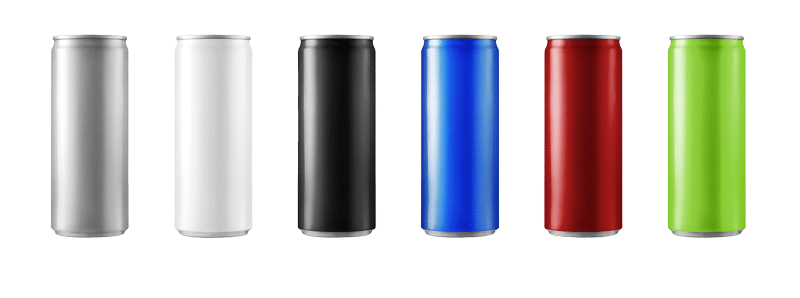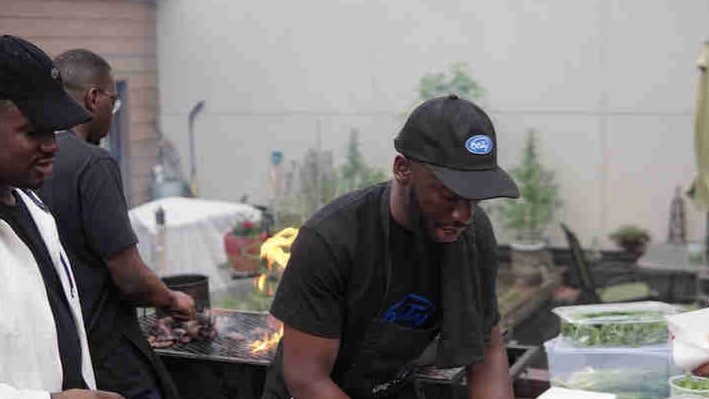hospitality, food & beverage service industry. We share these posts to normalize the
challenges and decrease the stigma and shame.
Growing up, dealing with weight issues was tough for me. I was the big kid who couldn’t
run, wasn’t confident enough to talk to girls, didn’t feel comfortable around certain
friends and family because of their comments, ate in secret and for most of my youth, I
hated the way I looked. It made me super anxious being in public, and while I didn’t
recognize it at the time, these things took a toll on my mental health. And because I
couldn’t recognize it, I couldn’t talk about it. I wasn’t particularly exposed to spaces
where feelings were openly and honestly discussed, especially as a guy.
Now though, I can. We talk a lot more about mental health issues and I love it. At the
same time, I’ve struggled with finding a place to have conversations on what I’ve had
difficulty with. Being an African man, finding other guys like me who have struggled with
eating disorders and body image issues hasn’t been easy. I don’t doubt that we’re out
there. It might just be hard to talk about it; trust me I know.
Food has always been a big part of my family. It may in fact be synonymous with our
last name. I sometimes think about how my cousins and I would gather on the floor at
my dad’s parents’ house. We’d share a loaf of sweet yellow bread, our individual plates
of oily peppery stew, and bite sized pieces of meat. At my mum’s parents house, we
had perfectly ripened fried plantain (dodo) and fried eggs – an unmatched pair. We’d
layer our eggs between our plantain and make little sandwiches. Most times we’d (at
least I did) add ketchup because we were kids.
With my dad, on the other hand, I think sometimes he cooks because he needs to. It’s
one of the many ways he speaks to and shares himself with us. He’s not a simple cook.
He’s a person of process. His prep game is mad strong. Growing up in Lagos, Nigeria
we’d go to his meat guy at Costain. Costain is hard to describe. Is it a meat market? Is it
a butcher’s store? Is it just land underneath a bridge where you could choose your ram,
cow, chicken, turkey, guinea fowl whatever you wanted, and have it carved up for you in
no time? The details are trivial. I was more blown away by how he picked his ram of the
day from, watched his guy slaughter and carve it up and then head home to help him
prep. It’d be a whole day’s work that culminated in a pot of pepper soup thick with offals.
Each spoon was half fatty goat meat, half spicy broth, the flavours elevated by hints of
efinrin (African Basil) we grew in our garden. Pair that with some Goodies pita bread
and you’re in heaven. When he comes to visit here in Canada, he spends hours fishing.
He’s out at sunrise and back by midday with cooler full of cleaned fish ready to fry, grill,
stew, you name it. Half of our conversations, our interactions are about food. He’s
taught me a lot, but hands down my jollof is better than his, and I will teach him this one
day.
“Being an African man, finding other guys like me who have struggled with eating disorders and
body image issues hasn’t been easy”
Bottom line? We all love food. We all nurtured an appreciation for food and what it
meant to us as a family, but the challenging part of all this was that while I grew up
around all this love for food, I didn’t feel safe expressing my love for it. I heard the term
“orobo” (fat person) or the phrase “ah you’re eating again?” One too many times. And
now looking back, I gotta say the amount of body shaming kids get is unnecessary. Cut
that shit out. Speaking from experience, it can create an unhealthy relationship with
both themselves and food. Both things are necessary for survival.
I eventually lost a ton of weight when I was 12 and with that, finally came all the
acceptance I craved from people around me. But what they don’t tell you is that deep
down the internalized shame still lives on. I grew up with a very fraught relationship with
food. I loved it, I loved cooking, being around it, wanted to but couldn’t enjoy it. It was a
huge part of my identity and I couldn’t embrace it.
I think what stands out to me now when I think back is the boundaries that were put
around what I could eat. I remember wanting to eat a Snickers bar many years ago and
being told that it had a certain amount of calories and so if I ate it, it’s a meal. Done. No
more food until it was time to eat again – a schedule, which I couldn’t control. I wasn’t
even 10 yet and I was counting calories and watching my waistline. To this day, I
struggle with buying clothes that actually fit. I’ve been stuck in this idea of what my plate
should look like; vegetables and protein, and what my waist should always look like –
size 32. The most fucked up part about this is that to be human, to be normal means
that you don’t ever stay the same. You grow, you make different choices about food,
about clothing, about what you like and what you don’t.
For me, when I talk about disordered eating, it looks like cutting meals, taking whole
portions of food and throwing half out before I eat, working out right after I’ve eaten
something “fatty.” Ha. I remember I used to look for quiet places at gatherings, at home,
wherever I was, and do push ups till I max out just so I could eat. Like I had to earn it.
It’s weird. Other times it can look like not eating throughout the day and trying to sneak
in meals at night when everyone else is asleep. I didn’t talk about this for years and
even though I’m seemingly healthy now, it’s still hard to be this vulnerable. I don’t think I
fit the stereotype of someone with these issues, so having to validate these things to
people is exhausting. 10/10 do not recommend. That said, I just want to eat when I want
to and not care about what anyone would say. It’s taken time but I think I’m finally here.
With therapy, a lot of unlearning, and the support of my friends, I’ve felt less alone. More
capable of being myself.
I work part-time at a restaurant right now. The other half of my time is spent working
with people with young adults who have experiences with mental health challenges. For
keep finding spaces to grow.
Now once a month or so, I’ll save enough money to buy ingredients I haven’t cooked
with before. Planning the meal days, sometimes weeks ahead, I’d wake up on a
Saturday morning and head over to Kensington market in Toronto. I prep and cook all
day and maybe invite a friend over to share this with me. Over the past few months, this
has saved me. My mental health was in the gutter for a while. I was in therapy, but I
needed this too. Cooking at work and cooking at home was a huge help. I spoke to my
therapist about this recently. I think I actually love cooking and working at a restaurant
because it’s a healthy way for me to interact with food.
I think the most important lesson here, and the bridge between cooking and mental
health for me is how much goes into my “final product”. In cooking, my food is better
when I prep ahead. When I’m mindful of how each component will play into the dish, I
can set my mise en place and build the meal accordingly. The outcome is not always
perfect, and that’s okay. As long as I’ve got my mise, I can always try again. Working
on my mental health is similar. In this case, my “wellness plan” could
look like weeks of self-reflection, countless conscious attempts to be different, rest,
healthy boundaries, self-compassion, and support. Even if the outcome of all of this
falls short, at least my set up is there; I’m ready to try again.
At work, somewhere in the middle of all the madness, the chef is yelling “1 minute to the
plate!” and I’m pulling up baskets of boiling pasta, throwing them into 7 different pans.
My co-worker and I toss and taste, season if necessary and then it’s on the plate.
Somewhere in the middle of this all, I’ll have an out-of-body experience. I see myself
improving. My body is moving ten times faster than I can think. I see the evidence of the
hundreds of times I’ve done this before and now, each dish is perfect 8/10 times. Like
now, maybe I have 8/10 good days. But those last two days, like those last two plates
may just be shit. I may hate how I look, judge myself for eating something, still deal with
anxious thoughts around food. What I cooked may be sent back to be remade, or the
chef may taste it and ask me to remake it on the fly. But I always go again.
I don’t know that I want to be a full time chef, but I don’t know that I can ever not be
around food.
The discipline, the madness, the process, the consistency, the failures, the growth. All the things
you need to embrace in therapy, I keep finding when I cook.


